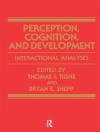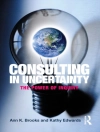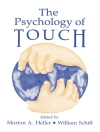A comprehensive guide to the theory, research and practice of violence risk management
The Wiley Handbook of What Works in Violence Risk Management: Theory, Research and Practice offers a comprehensive guide to the theory, research and practice of violence risk management. With contributions from a panel of noted international experts, the book explores the most recent advances to the theoretical understanding, assessment and management of violent behavior. Designed to be an accessible resource, the highly readable chapters address common issues associated with violent behavior such as alcohol misuse and the less common issues for example offenders with intellectual disabilities.
Written for both those new to the field and professionals with years of experience, the book offers a wide-ranging review of who commit acts of violence, their prevalence in society and the most recent explanations for their behavior. The contributors explore various assessment approaches and highlight specialized risk assessment instruments. The Handbook provides the latest evidence on effective treatment and risk management and includes a number of well-established and effective treatment interventions for violent offenders. This important book:
* Contains an authoritative and comprehensive guide to the topic
* Includes contributions from an international panel of experts
* Offers information on violence risk formulation
* Reveals the most recent techniques in violence risk assessment
* Explains what works in violence intervention
* Reviews specialty clinical assessments
Written for clinicians and other professionals in the field of violence prevention and assessment, The Wiley Handbook of What Works in Violence Risk Management is unique in its approach because it offers a comprehensive review of the topic rather than like other books on the market that take a narrower view.
O autorze
J. STEPHEN WORMITH, PHD, was Professor in the Psychology Department at the University of Saskatchewan (U of S) and Director of the Centre of Forensic Behavioral Science and Justice Studies at U of S. He had consulted recently on correctional matters with governments of British Columbia, Saskatchewan, Ontario and Canada and served in court as an expert witness on matters of offender assessment and treatment. He was a Fellow of the Canadian Psychological Association.
LEAM A. CRAIG, PHD, is a Consultant Forensic Clinical Psychologist and Partner at Forensic Psychology Practice Ltd. He is a visiting Professor of Forensic Clinical Psychology, Birmingham City University and Hon. Professor of Forensic Psychology, University of Birmingham. He acts as an expert witness on the assessment and treatment of offenders and is Chair of the British Psychological Society Expert Witness Advisory Group. He is a Fellow of the British Psychological Society and of the Academy of Social Sciences.
TODD E. HOGUE, PHD, is Professor of Forensic Psychology at the University of Lincoln and a registered forensic and clinical psychologist who has worked in prison and secure healthcare settings mainly developing treatment services for personality disorder offenders and those who commit sexual offences.












